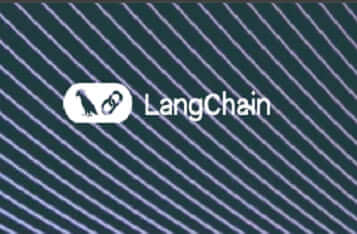World Bank Pushes to Raise the Bar for FinTech and DLT for Cross-Border Interoperability and Financial Inclusion
The World Bank Group has recently published a study, issued by the Bank for International Settlements (BIS) on “Payment aspects of financial inclusion in the FinTech era,” highlighting the concepts derived using blockchain, including stablecoins, and central bank digital currencies (CBDCs).


The World Bank Group has recently published a study, issued by the Bank for International Settlements (BIS) on “Payment aspects of financial inclusion in the FinTech era,” highlighting the concepts derived using blockchain, including stablecoins, and central bank digital currencies (CBDCs).
Disruptive technology and innovation have made its way to the financial services sector, specifically evident in the payments industry. This has led to the “era of fintech,” as the report indicates, which has the ability to transform the provision of financial services, leading to advanced business models, applications, processes, and products.
The report reflects and enhances the guidance issued in the report on Payment aspects of financial inclusion by the World Bank along with the Committee on Payments and Market Infrastructures in 2016. In this report, FinTech has been emphasized with its opportunities and challenges in improving access to and the usage of safe transaction accounts.
As usual, as the report indicates the benefits of leveraging financial technology for financial inclusion strategies, it also emphasizes on attending to the potential risks. These risks include operational and cyber resilience risks, and it is essential to note and protect customer funds, data, privacy, digital exclusion, and market concentration.
FinTech developments could potentially enable an increased international and cross-sectoral coordination, with the development of CBDCs, and other cross-border innovations, the report calls for the continuation of addressing the risks involved.
Distributed ledger technology
Distributed ledger technology (DLT) has been regarded as one of the most relevant new technologies in the FinTech development area for financial inclusion, along with cloud computing, contactless technologies, digital identification, and the internet of things. These technologies could be applied to existing payment products or financial products to promote broader access to the population.
The institution indicated hope that the technology would live up to its expectations, as the application of DLT could address the challenges in enhancing access to financial services. Other than the payment and financial services applications, identity management systems, and asset registries could also be eased with DLT.
The PAFI FinTech wheel shows the focus of new technologies in the center of the wheel while allowing for optimization for traditional existing processes and products, and new products that could be harnessed with the technology, according to the report.

Source: Bank for International Settlements
What about Stablecoins and Libra?
The World Bank also highlighted the role of stablecoins and CBDCs in cross-border transactions, and stablecoin projects such as Facebook’s Libra has acted as a catalyst for many jurisdictions to be open to exploring CBDCs to address cross-border payment difficulties.
The report stated, “Stablecoins have prompted central banks in some countries to accelerate their investigations into CBDCs and generally resulted in greater attention being paid to the challenges of financial inclusion and more efficient cross-border payments [...] No global retail stablecoin initiative is currently operational.”
BIS report on the changes in the payment industry, impact of the coronavirus outbreak
The Bank for International Settlements (BIS) has previously released a quarterly report on the changes in the payment industry, including the market impact of the recent coronavirus outbreak.
Some of the trends mentioned in the report include stablecoins, tokenized securities, CBDCs, cross-border payments, and peer-to-peer payments.
The pace of change and innovations’ potential for disruption in the payments industry was one of the key takeaways of the report. In turn, this has propelled payment systems to the top of policymakers’ agenda, according to the BIS.
Bitcoin and Libra have also caught the institution’s attention. At the same time, the BIS acknowledged that central banks are increasingly exploring the “desirability and feasibility of establishing their own peer-to-peer systems through digital currencies.
Image via ShutterstockImage source: Shutterstock


.jpg)
